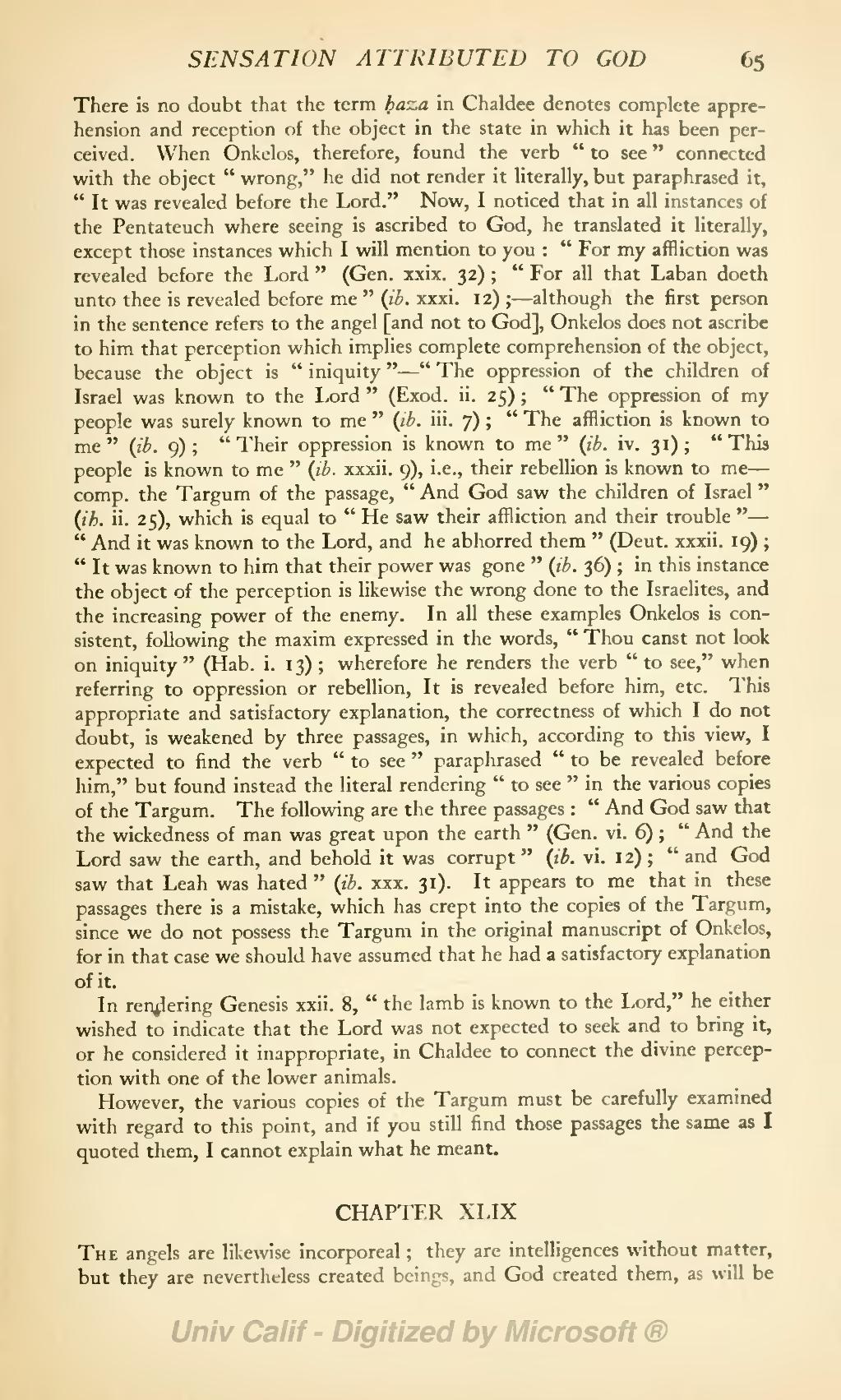There is no doubt that the term haza in Chaldee denotes complete apprehension and reception of the object in the state in which it has been perceived. When Onkelos, therefore, found the verb "to see" connected with the object "wrong," he did not render it literally, but paraphrased it, "It was revealed before the Lord." Now, I noticed that in all instances of the Pentateuch where seeing is ascribed to God, he translated it literally, except those instances which I will mention to you: "For my affliction was revealed before the Lord" (Gen. xxix. 32): "For all that Laban doeth unto thee is revealed before me "(ib. xxxi. 12):-although the first person in the sentence refers to the angel [and not to God], Onkelos does not ascribe to him that perception which implies complete comprehension of the object, because the object is "iniquity" - "The oppression of the children of Israel was known to the Lord" (Exod. ii. 25): "The oppression of my people was surely known to me" (ib. iii. 7): "The affliction is known to me" (ib. 9): "Their oppression is known to me" (ib. iv. 31): "This people is known to me" (ib. xxxii. 9), i.e., their rebellion is known to me. Comp. the Targum of the passage, "And God saw the children of Israel (ib. ii. 25), which is equal to "He saw their affliction and their trouble," "And it was known to the Lord, and he abhorred them" (Deut. xxxii. 19): "It was known to him that their power was gone" (ib. 36): in this instance the object of the perception is likewise the wrong done to the Israelites, and the increasing power of the enemy. In all these examples Onkelos is consistent, following the maxim expressed in the words, "Thou canst not look on iniquity" (Hab. i. 13): wherefore he renders the verb "to see," when referring to oppression or rebellion, It is revealed before him, etc. This appropriate and satisfactory explanation, the correctness of which I do not doubt, is weakened by three passages, in which, according to this view, I expected to find the verb "to see" paraphrased "to be revealed before him," but found instead the literal rendering "to see" in the various copies of the Targum. The following are the three passages "And God saw that the wickedness of man was great upon the earth" (Gen. vi. 6) "And the Lord saw the earth, and behold it was corrupt" (ib. vi. 12): "and God saw that Leah was hated" (ib. xxx. 3). It appears to me that in these passages there is a mistake, which has crept into the copies of the Targum, since we do not possess the Targum in the original manuscript of Onkelos, for in that case we should have assumed that he had a satisfactory explanation of it.
In rendering (Genesis xxii. 8), "the lamb is known to the Lord," he either wished to indicate that the Lord was not expected to seek and to bring it, or he considered it inappropriate, in Chaldee to connect the divine perception with one of the lower animals.
However, the various copies of the Targum must be carefully examined with regard to this point, and if you still find those passages the same as I quoted them, I cannot explain what he meant.
CHAPTER XLIX
THE angels are likewise incorporeal: they are intelligences without matter, but they are nevertheless created beings, and God created them, as will be explained
